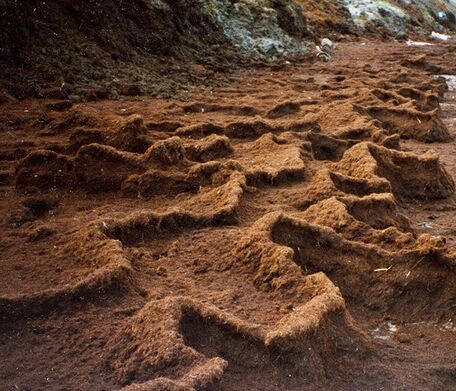Detritus
In geology detritus is particles of rock derived from pre-existing rock through processes of weathering and erosion. In biology detritus is dead particulate organic material, as distinguished form dissolved organic material.
Geology
Detritus is particles of rock derived from pre-existing rock through processes of weathering and erosion. A fragment of detritus is called a clast. Detrital particles can consist of lithic fragments (particles of recognisable rock), or of monomineralic fragments (mineral grains). These particles are often transported through sedimentary processes into depositional systems such as riverbeds, lakes or the ocean, forming sedimentary successions. Diagenetic processes can transform these sediments into rock through cementation and lithification, forming sedimentary rocks such as sandstone. These rocks can then in turn again be weathered and eroded to form a second generation of sediment.
Biology
Detritus is dead particulate organic material, as distinguished from dissolved organic material. Detritus typically includes the bodies or fragments of bodies of dead organisms, and fecal material. The detritus of aquatic ecosystems is organic material that is suspended in the water and accumulates in depositions on the floor of the body of water; when this floor is a seabed, such a deposition is denominated "marine snow". Detritus can be the base for eutrophication.
References
Detritus

| Origin: | Pre-existing rock |
| Deposited in | Depositional environments |
| Made due to | Erosion and weathering |
| Particles | Clasts |
| Image | Detritus |
Contents